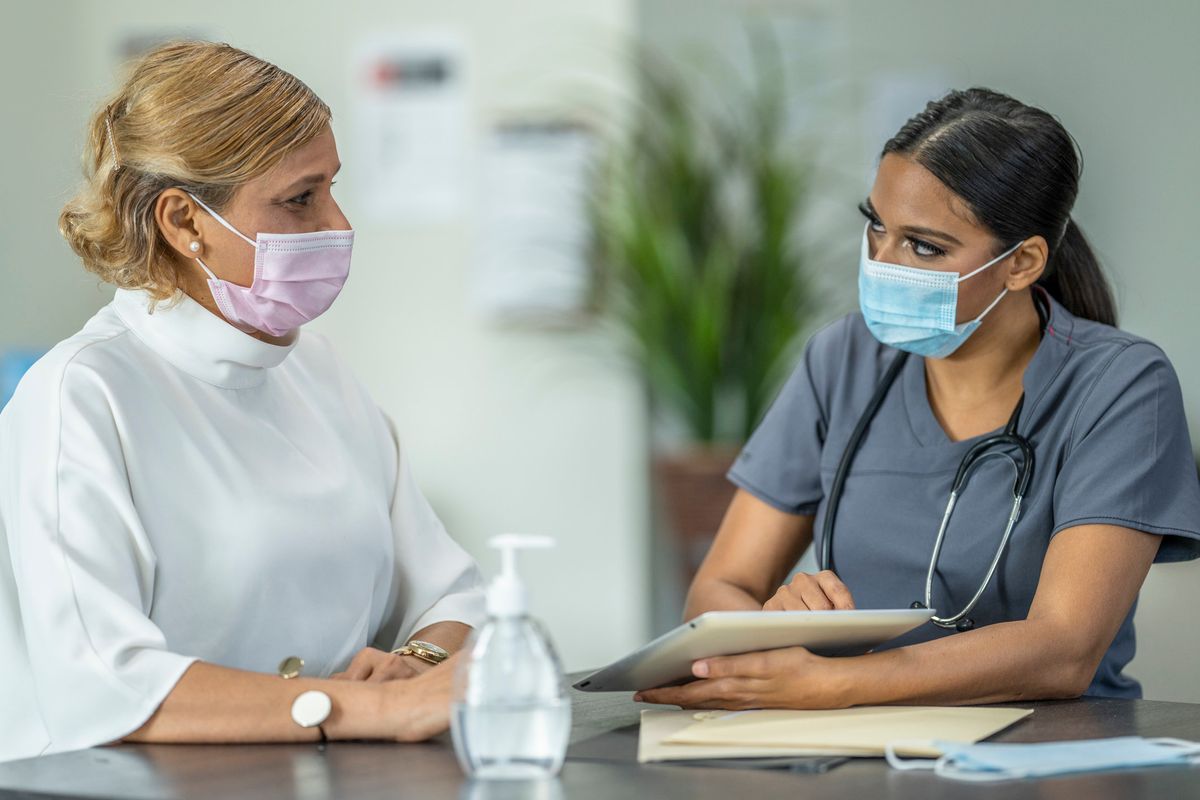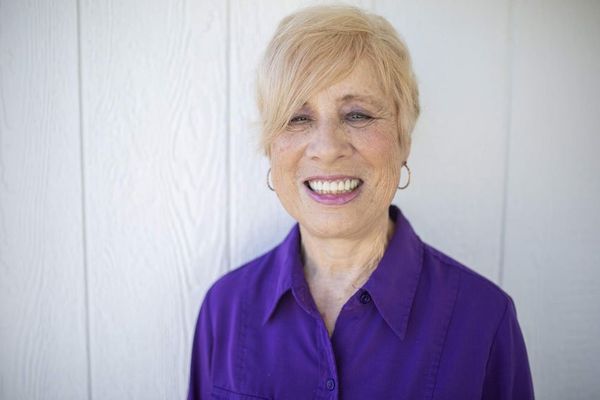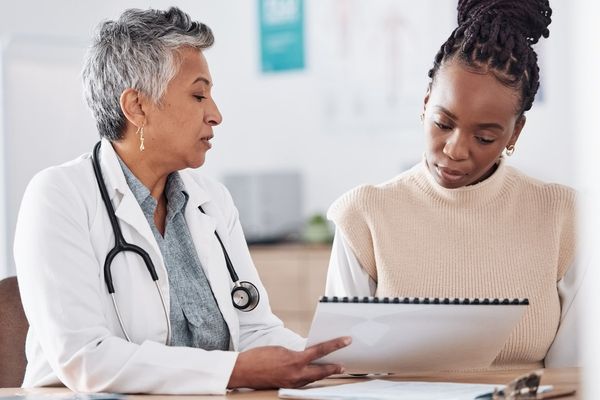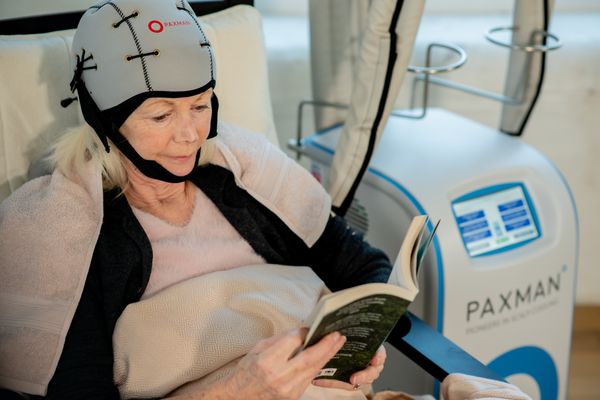Living with follicular lymphoma (FL) can often feel overwhelming. A slow-growing, typically incurable blood cancer, FL causes common symptoms such as swollen lymph nodes in the neck, underarms, chest, abdomen and groin/pelvis, as well as fatigue, weight loss and shortness of breath. In some cases, people with FL may not have obvious symptoms at diagnosis.
Despite its slow-growing nature, FL should be monitored following the diagnosis, during and after treatment. People with FL may often experience long periods of remission before their disease returns (relapses), and they may become resistant to previous treatments they have received (called refractory FL), as their disease becomes more aggressive and/or difficult to treat. It is therefore important that they continue to be monitored periodically during periods of remission.
Connie Lee Batlevi, M.D., Ph.D., a lymphoma specialist at Memorial Sloan Kettering Cancer Center in New York, stresses how critical it is for patients to work closely with their doctors to develop a long-term treatment plan. That plan, she said, should consider the pace of the person's lymphoma, any concurrent medical conditions and individual lifestyle needs.
"I've seen first-hand how difficult living with follicular lymphoma can be for my patients, especially now as we continue to be impacted by the COVID-19 pandemic," said Batlevi, who treats many patients living with FL.
"Given that the pandemic may continue to be a part of our lives, as physicians our focus is always on the protection and care for our patients," she said. "I often think of my patients as a part of my extended family, and I often encourage them to remember their routine follow-up appointments to ensure we're providing the best possible care and monitoring any potential disease progression.
"While some patients are enjoying the convenience of telehealth, others really need and miss the physical connection associated with in-person visits. Telemedicine has proven to be an important option for patients to maintain dialogues with their doctor at this time, yet it is critical to continue routine, in-person check-ins to ensure any potential relapse or disease progression is being monitored."
Here are Batlevi's recommendations for questions people with FL can ask their health care providers — and why they matter.
What signs or symptoms should I watch for in between appointments? What should I do if they develop?
Why this question is important: Developing certain symptoms can serve as a warning that the cancer may be progressing, or that it needs a more urgent evaluation than simply waiting until the next appointment. Symptoms can vary and often include fatigue, fever, chills, weight loss or enlarging and persistent lumps. However, more commonly, symptoms are based on the location of the particular lymph node. For example, if a lymph node is compressing the gastrointestinal system, it can cause abdominal symptoms. If the lymphoma is compressing a nerve, it can cause pain. A good guide is to call your doctor if an atypical symptom continues for weeks or months. It's important to have ongoing, open and honest conversations with your doctor about your symptoms so both of you can determine when a symptom is something to be concerned about.
How will I know my FL has relapsed if the symptoms are typically so subtle?
Why this question is important: Given the sometimes subtle symptoms associated with FL, a relapse may be difficult to detect without routine check-ins with a doctor. It's important for people living with incurable cancers like FL to continue having routine appointments with their doctors and not forego care, especially during COVID-19 (all hospitals and clinics have rigorous safety precautions in place). Since FL is a slow-growing cancer with a high probability of recurrence, it's crucial that patients continue their regularly scheduled visits and discuss whether routine surveillance imaging is appropriate. Telemedicine appointments may be an option, but telemedicine visits should not fully replace in-person appointments.
What does it mean if my cancer returns (relapses) or becomes resistant to treatment (refractory)?
Why this question is important: As FL is typically an incurable disease, the reality is most patients may experience a relapse at some point in their lives. That is why continued follow-up appointments with your doctor are important. Routine screens and check-ins allow you to discuss any pertinent updates and/or changes you may have experienced. Given that patients may become resistant to prior treatments (refractory), it's important to work with your doctor to develop a long-term treatment plan that addresses the severity of your FL and takes into consideration available treatment options that best support your lifestyle needs.
If my FL relapses or I become resistant to my previous treatment, what are my options?
Why this question is important: The past few years have proven to be a revolutionary time for lymphoma treatments as scientists and clinicians have worked to develop new treatments that are providing benefits to most FL patients. Some of these treatments are oral medications that can be taken at home, which can be helpful during the COVID-19 pandemic.
Other new forms of treatment include immune therapies, which work by helping your own immune system target the lymphoma. Conceptually, the next several years may see combinations of established targeted and immune-based treatments designed to attack the lymphoma in different ways simultaneously.
Are there any resources you can recommend where I can learn more about FL?
Why this question is important: Some patients and their families may immediately seek out all information they can find about the disease. However, it is critical to remember that not all information is created equal, especially on the Internet. Your healthcare provider should be able to provide you with a list of reliable, up-to-date resources. You can also find more here.
As the patient or caregiver, you should never be afraid to ask your health care provider questions or discuss all the options if you've done your own research. At the end of the day, your needs and preferences are an important part of your treatment plan.
"I encourage patients not to let follicular lymphoma overwhelm them," Batlevi said, "I always remind them that with the appropriate management plan developed with a lymphoma specialist, they can still lead long and fulfilling lives."
Resources
The Lymphoma Research Foundation provides lymphoma-specialized emotional, physical and financial support for people with cancer.
CancerCare provides resources for cancer patients more generally.
This resource was created with support from Epizyme.






